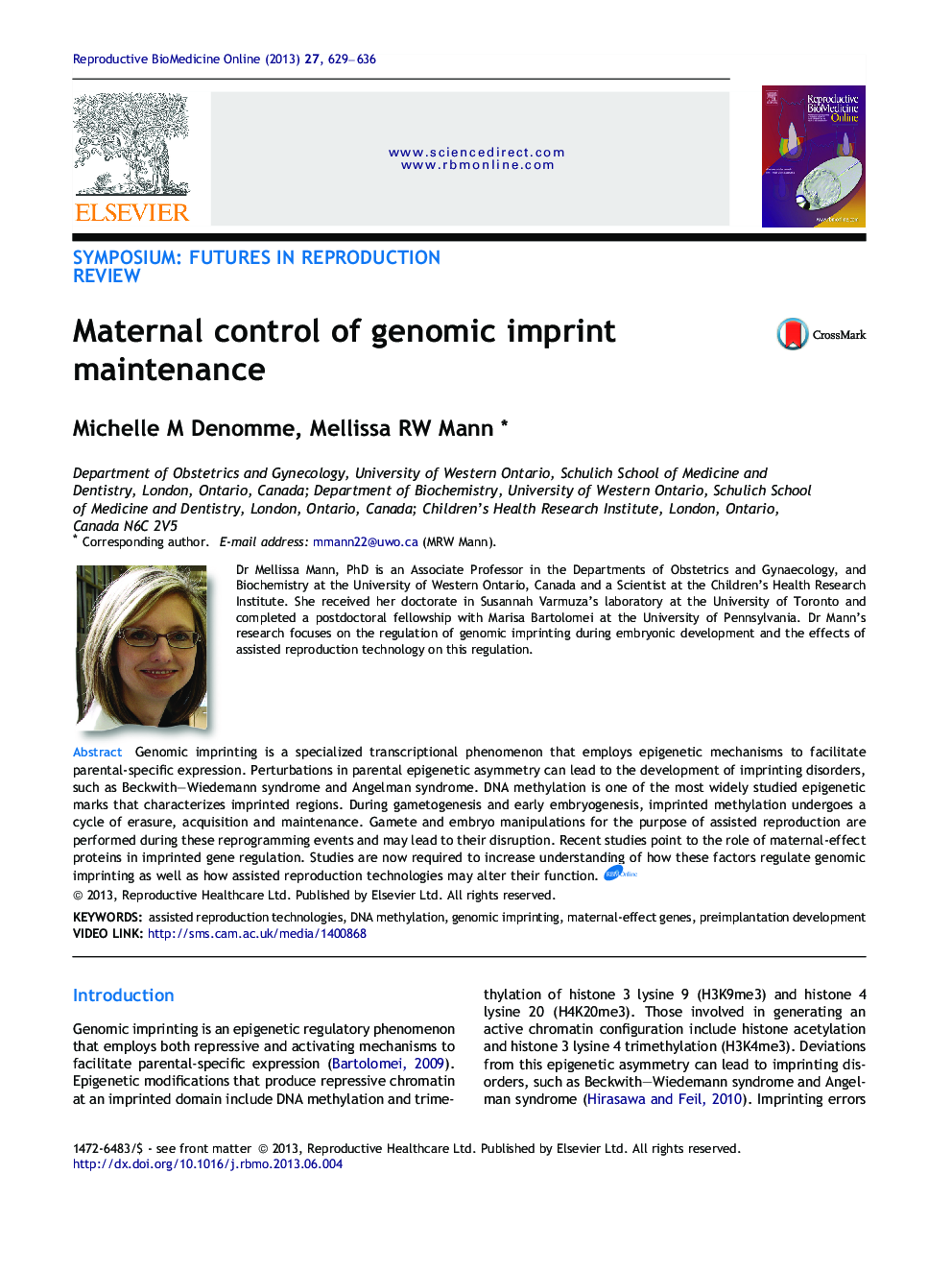| Article ID | Journal | Published Year | Pages | File Type |
|---|---|---|---|---|
| 3970217 | Reproductive BioMedicine Online | 2013 | 8 Pages |
Genomic imprinting is a specialized transcriptional phenomenon that employs epigenetic mechanisms to facilitate parental-specific expression. Perturbations in parental epigenetic asymmetry can lead to the development of imprinting disorders, such as Beckwith–Wiedemann syndrome and Angelman syndrome. DNA methylation is one of the most widely studied epigenetic marks that characterizes imprinted regions. During gametogenesis and early embryogenesis, imprinted methylation undergoes a cycle of erasure, acquisition and maintenance. Gamete and embryo manipulations for the purpose of assisted reproduction are performed during these reprogramming events and may lead to their disruption. Recent studies point to the role of maternal-effect proteins in imprinted gene regulation. Studies are now required to increase understanding of how these factors regulate genomic imprinting as well as how assisted reproduction technologies may alter their function.Assisted reproductive technologies have been linked to the development of Beckwith–Wiedemann syndrome and Angelman syndrome. This may relate to the fact that the use of assisted reproduction technology coincides with crucial events that establish and maintain gene expression during egg and early embryo development. Recent studies have identified several proteins that are found in the egg that may play a role in gene expression in the early embryo. Studies are now required to increase understanding of how these factors work as well as how assisted reproductive technologies may alter their function.VIDEO LINK:http://sms.cam.ac.uk/media/1401622
